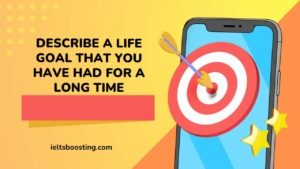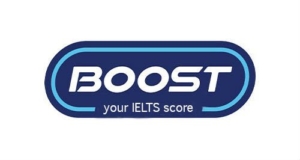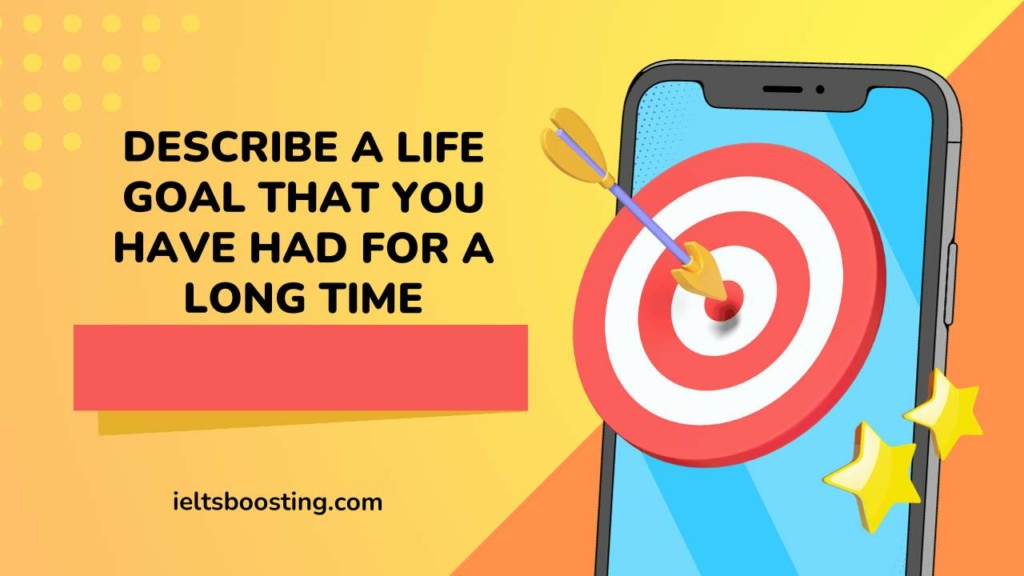Describe a life goal that you have had for a long time
You should say:
How long you have had this goal
What the goal is
How you will achieve it
And explain how important it is to you

Describe a life goal that you have had for a long time
Sample answer
For the past three years, I’ve nurtured a life goal to become a professional investor. This ambition started when I began to understand the importance of financial independence and the role of smart investing in achieving it.
To reach this goal, I’ve committed to thoroughly educating myself about various aspects of investing, including market analysis and portfolio management. I believe that personal experience is the best way to learn, instead of attending investment class. My strategy includes reading at least one investment book each month to deepen my knowledge of analyzing companies and understanding economic trends. These books range from beginner guides to more advanced strategies in investing. Moreover, I actively participate in online investing groups on platforms like Facebook and Zalo. These communities are invaluable for staying updated with the latest market news and investment tips.
This goal is extremely important to me because achieving proficiency in investing could secure my financial future. I believe that if I become a savvy investor, I won’t have to worry about financial issues, and it will afford me the freedom to travel the world. The dream of exploring different cultures and countries without financial constraints powerfully motivates me. It’s not just about the money; it’s about the lifestyle and freedom that comes with being financially savvy。
Vocabulary and collocations
- Nurtured a life goal: Carefully developed or cultivated a long-term ambition.
- Professional investor: A person skilled in investing as a profession.
- Financial independence: The state of having sufficient personal wealth to live without having to work actively for basic necessities.
- Smart investing: The practice of making wise investment decisions.
- Educating myself thoroughly: Engaging in comprehensive self-learning.
- Personal experience: Direct involvement or participation in activities.
- Investment book: A publication that provides information about investing.
- Deepen my knowledge: Enhance or extend understanding.
- Analyzing companies: Examining and interpreting the details of businesses.
- Understanding economic trends: Grasping changes and patterns in the economy.
- Online investing groups: Internet-based communities focused on investment topics.
- Invaluable for staying updated: Extremely useful for remaining informed.
- Latest market news: Most recent information about the financial market.
- Investment tips: Advice or pointers about investing.
- Achieving proficiency: Reaching a high level of skill or expertise.
- Savvy investor: A knowledgeable and shrewd person in making investments.
- Financial issues: Problems or matters related to money.
- Afford me the freedom: Allow me the liberty or opportunity.
- Exploring different cultures: Experiencing and learning about diverse ways of life.
- Financial constraints: Limitations or restrictions related to money.
- Significant motivator: A strong factor that stimulates someone to act.
- Financially savvy: Having good judgment and knowledge about financial matters.
Describe a time when you were very busy
Forecast speaking from 1-4 2024

Describe a life goal that you have had for a long time
Part 3-Describe a life goal that you have had for a long time
What do young people have for goals?
Young people today often have diverse goals, largely influenced by the changing world. A prevalent ambition is to achieve academic excellence, paving the way to a fulfilling career, particularly in sectors influenced by technology. Another significant aspiration among youth is financial freedom, which involves not just earning well but also mastering the art of managing and investing money wisely. Moreover, personal development goals, like traveling, learning new skills, or achieving physical fitness, are equally popular among the younger generation.”
Useful Vocabulary:
- Diverse goals: A wide range of objectives or aims.
- Influenced by: Affected or altered by.
- Aspire: To have a strong desire to achieve something.
- Educational and career success: Achievements in learning and professional life.
- Global issues: Problems or challenges that affect the world.
- Social activism: Efforts to promote, impede, direct, or intervene in social, political, economic, or environmental reform.
- Environmental sustainability: Responsible interaction with the environment to avoid depletion or degradation of natural resources.
- Personal development: The process of improving oneself through activities that develop talents and potential.
- Physical fitness: The condition of being physically strong and healthy.
How to be better prepared for your goals?
To be better prepared for your goals, it’s crucial to start with clear and realistic planning. This involves setting specific, measurable, achievable, relevant, and time-bound (SMART) objectives. Regular self-assessment and adapting your strategies as needed can also enhance your preparedness. Additionally, seeking mentorship or guidance from those who have achieved similar goals can provide valuable insights and motivation.”
Useful Vocabulary:
- Clear and realistic planning: The process of making sensible plans that are understandable and achievable.
- Specific, Measurable, Achievable, Relevant, and Time-bound (SMART) objectives: A set of criteria that guide the setting of effective and achievable goals.
- Regular self-assessment: The frequent evaluation of one’s own progress or performance.
- Adapting strategies: Modifying approaches or plans to suit changing conditions or objectives.
- Preparedness: The state of being ready for something.
- Seeking mentorship: Actively looking for guidance or advice from a more experienced person.
- Guidance: Advice or information aimed at resolving a problem or difficulty.
- Valuable insights: Helpful and significant understanding or knowledge.
- Motivation: The reason or reasons for acting or behaving in a particular way.
If your friend does not have goals what do you do to help?
If a friend of mine doesn’t have clear goals, I would start by encouraging them to explore their interests and passions. This could involve having open discussions about what they enjoy doing and what they feel passionate about. I would also suggest they try new activities or hobbies, as these can often lead to the discovery of hidden talents or interests. Additionally, offering to set and achieve small, attainable goals together can be a great way to start building the habit of goal-setting.
Useful Vocabulary:
- Encouraging: Giving support, confidence, or hope to someone.
- Explore interests: To investigate or become familiar with what one finds enjoyable or intriguing.
- Passions: Strong and barely controllable emotions or desires, especially those that are love or enthusiasm for something.
- Open discussions: Conversations where ideas and opinions are exchanged freely.
- Try new activities: To attempt different tasks or hobbies.
- Hidden talents: Abilities or skills that are not apparent or have not yet been discovered.
- Attainable goals: Objectives that are achievable or reachable.
- Building the habit: Developing a regular tendency or practice.
- Goal-setting: The process of identifying something that you want to accomplish and establishing measurable goals and timeframes.
Is it necessary to give advice to children?
Providing advice to children is indeed necessary as it plays a vital role in their development and learning. Children, with their limited life experience, often rely on adults for guidance in understanding the world around them. Through advice, we can teach them important life skills, values, and the difference between right and wrong. However, it’s also crucial to balance this with allowing children to make their own decisions and learn from their experiences.”
Useful Vocabulary:
- Vital role: An essential or critically important function.
- Development and learning: The process of growing and acquiring knowledge or skills.
- Limited life experience: Having minimal exposure to different aspects of life.
- Guidance: Advice or information aimed at resolving problems or difficulties.
- Understanding the world: Gaining knowledge or insight into how the world works.
- Life skills: Abilities for adaptive and positive behavior that enable individuals to deal effectively with the demands and challenges of life.
- Values: Principles or standards of behavior; one’s judgment of what is important in life.
- Right and wrong: Ethical or moral principles.
- Balancing: Maintaining an equilibrium or equal distribution.
- Own decisions: Choices or judgments made by oneself.
- Learn from experiences: To gain knowledge or wisdom by going through various life events.
Collins practice tests for ielts


